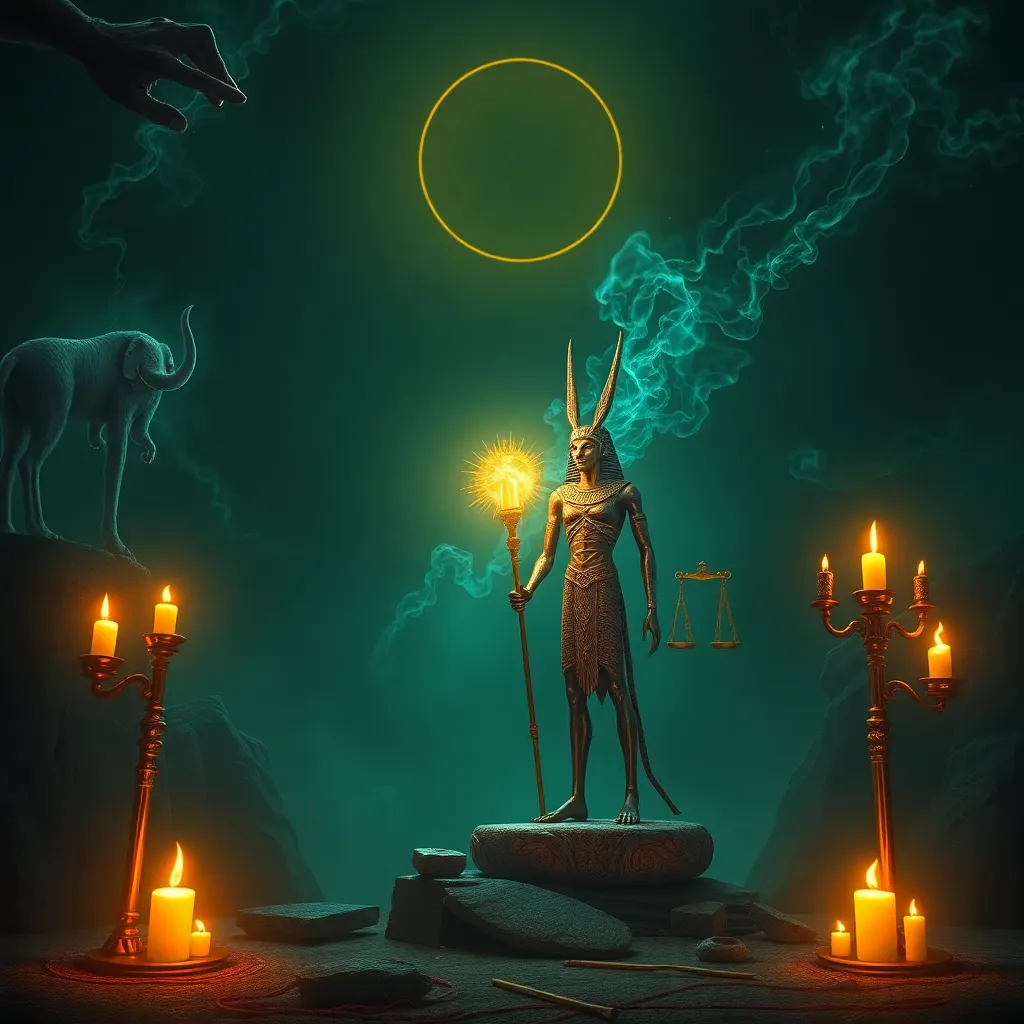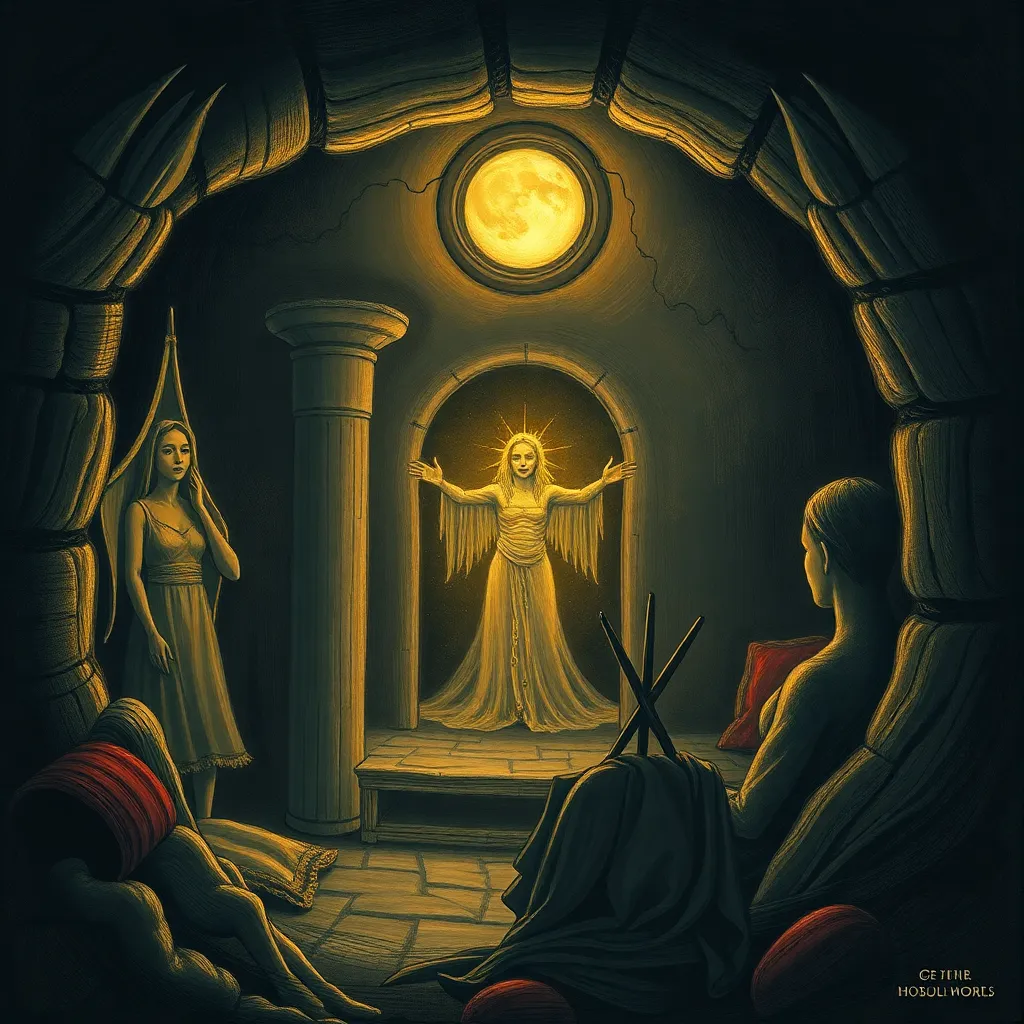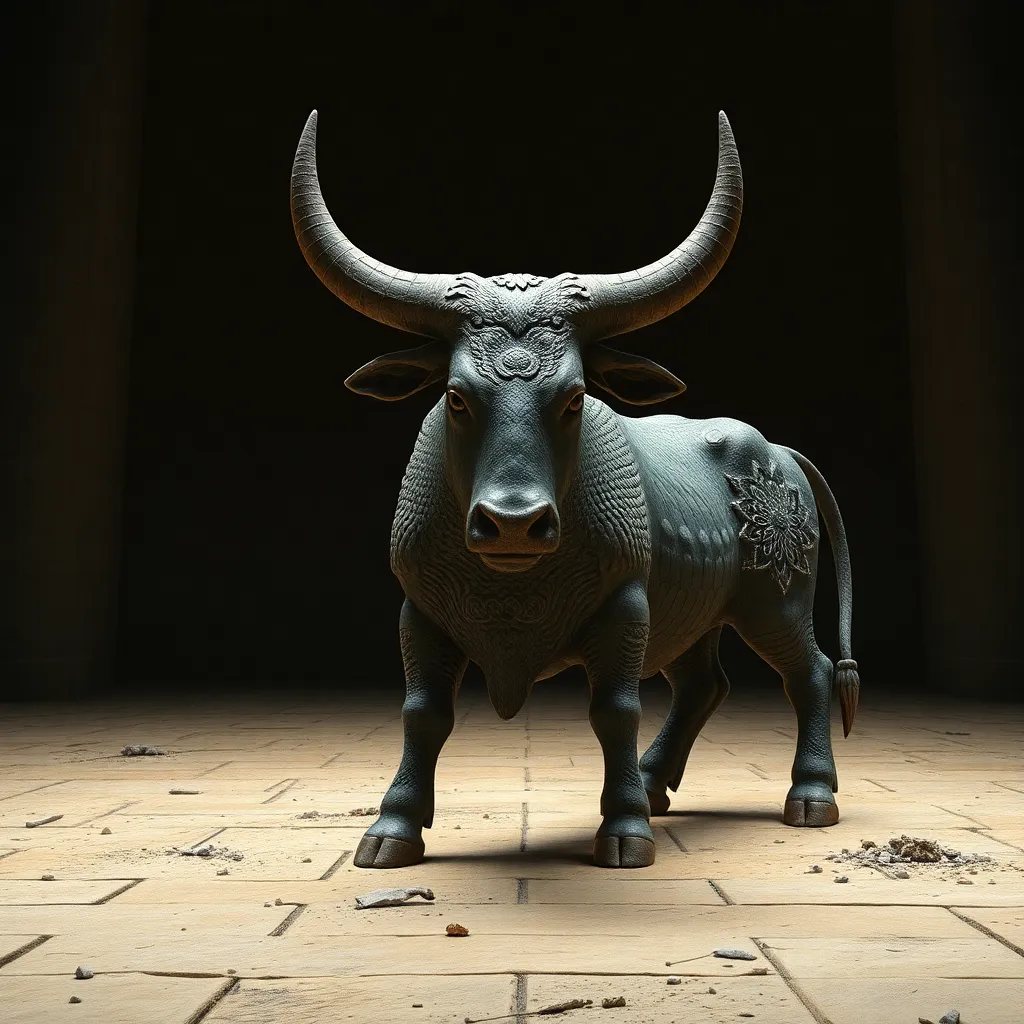Anubis and the Concept of Karma: Exploring Justice in the Afterlife
I. Introduction
In Ancient Egyptian mythology, Anubis is one of the most significant deities associated with the afterlife. He is recognized as the guardian of the dead and the overseer of funerary rites. Anubis’s primary role is to ensure that the souls of the departed are guided safely to the afterlife, where their deeds in life are assessed.
Karma, on the other hand, is a concept rooted in Eastern philosophies that denotes the cycle of cause and effect, where an individual’s actions directly influence their future, including their experiences in the afterlife. This principle is significant across various cultures, each interpreting karma in unique ways.
This article aims to explore the intricate relationship between Anubis and the concept of karma, particularly in the context of justice in the afterlife. By examining both concepts, we can gain deeper insights into the moral frameworks that shape our understanding of life and death.
II. Anubis: The Guardian of the Afterlife
Anubis has a rich historical background in Egyptian mythology, where he was often depicted as a man with the head of a jackal. He was revered as the protector of graves and the guide for souls transitioning to the afterlife. His worship dates back to the earliest periods of Egyptian history, reflecting the culture’s profound beliefs about death and the afterlife.
The symbolism associated with Anubis is multifaceted. The jackal, an animal often seen scavenging in cemeteries, represents his role as a protector of the dead. Additionally, Anubis was closely linked to mummification, as he oversaw the embalming process, ensuring that the deceased were properly prepared for their journey through the Duat, or the underworld.
Anubis’s role in guiding souls through the Duat is crucial. He serves not only as a protector but also as a mediator between the living and the dead. His presence in funerary texts highlights his importance in ensuring that souls arrive safely in the afterlife, ready for judgment.
III. The Weighing of the Heart Ceremony
One of the most significant events in the Egyptian afterlife is the “Weighing of the Heart” ceremony. This ritual is central to the judgment process, where the deceased’s heart is weighed against the feather of Ma’at, the goddess of truth and justice. The heart represents the individual’s soul and moral character, while the feather symbolizes purity and truth.
Anubis plays a critical role in this ceremony. He is responsible for weighing the heart and ensuring the process is conducted fairly. If the heart is lighter than the feather, the soul is deemed worthy and can proceed to paradise. Conversely, if the heart is heavier, it is consumed by Ammit, a fearsome creature, leading to the soul’s eternal damnation.
- Significance of the Ceremony: It illustrates the importance of moral integrity and the consequences of one’s actions.
- The Role of Anubis: As the judge and protector, Anubis embodies the ultimate authority in matters of life and death.
- Comparison of Symbols: The heart and feather represent the balance between one’s actions and the universal principles of truth and justice.
IV. The Concept of Karma
Karma, a term derived from Sanskrit, refers to the principle of cause and effect regarding an individual’s actions. It is a fundamental concept in religions such as Hinduism and Buddhism, where it is believed that every action has consequences that affect one’s current and future lives.
The origins of karma can be traced back to ancient Indian philosophies, where it was initially associated with the cycle of rebirth (samsara). In these cultures, karma is not merely about the immediate consequences of actions; it encompasses the broader implications of ethical behavior and personal responsibility.
Different cultures interpret karma in various ways. For instance:
- Hinduism: Karma is linked to dharma (duty), and fulfilling one’s responsibilities influences future rebirths.
- Buddhism: Karma is seen as interconnected with the concept of enlightenment and the cessation of suffering.
- Western interpretations: Some modern spiritual movements have adopted karma, emphasizing personal responsibility and moral accountability.
At its core, karma highlights the relationship between actions in life and their consequences in the afterlife, mirroring the judgment principles seen in the weighing of the heart ceremony.
V. Parallels Between Anubis and Karma
The evaluation of souls and their moral actions presents striking similarities between the roles of Anubis and the concept of karma. Both systems emphasize judgment based on one’s actions during life, highlighting the importance of moral choices.
The idea of judgment and retribution is central to both beliefs. In Egyptian mythology, Anubis assesses the heart against the feather, while karma operates under the principle that negative actions lead to negative consequences, either in this life or the next.
Moreover, personal responsibility plays a crucial role in both systems. Individuals are accountable for their actions, and this accountability is fundamental to achieving justice and balance in the afterlife.
VI. Justice in the Afterlife: Anubis and Karma in Action
To illustrate the concepts of Anubis and karma in action, we can examine various case studies from Egyptian mythology where souls face judgment.
- Osiris: The god of the afterlife, who embodies resurrection and judgment, reflecting karmic principles of rebirth and moral consequence.
- Set: Often depicted as a villain, his actions lead to his downfall, showcasing the repercussions of negative karma.
- Horus: The avenger of his father Osiris, representing the theme of justice being served through rightful actions.
The implications of karma shape narratives of justice and morality, suggesting that all actions have lasting consequences that resonate through time. Analyzing Anubis’s judgment alongside karmic beliefs reveals a shared understanding of the moral order that governs existence.
VII. Cultural Impact and Legacy
The influence of Anubis and the concept of karma continues to resonate in modern spirituality and cultural representations. In literature, film, and art, these themes are often explored to convey deeper messages about morality and justice.
- Literature: Works that delve into themes of judgment and the afterlife often reference Anubis or karmic principles.
- Film: Movies that explore ancient Egyptian mythology frequently feature Anubis, highlighting the allure of the afterlife.
- Art: Artistic interpretations of Anubis and karma reflect a fascination with the moral implications of our actions.
These themes remain relevant in contemporary discussions about justice and morality, inviting reflection on how ancient beliefs can inform our understanding of right and wrong today.
VIII. Conclusion
In summary, this exploration of Anubis and the concept of karma reveals significant parallels in their approaches to justice in the afterlife. Both emphasize the moral weight of one’s actions, the importance of personal responsibility, and the inevitability of judgment.
Reflecting on the interconnectedness of these ancient beliefs highlights our enduring quest for justice and understanding in a complex world. The legacy of Anubis and karma invites us to consider how our actions today shape our destinies and influence the broader moral narrative of existence.
Ultimately, these themes continue to resonate, reminding us of the timeless importance of ethics, accountability, and the quest for justice across cultures and ages.




